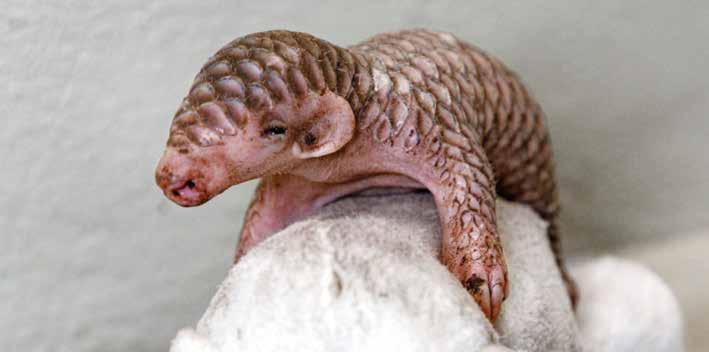
2 minute read
FISH SCIENCE
With Dr David Pool Holiday advice
While holidays are supposed to be an enjoyable time to “switch off”, leaving pets at home can be a daunting prospect for many exotics keepers. Although reptile keepers will most likely require a network of friends or family to support them whilst they’re away, fishkeepers are fortunate in that, providing a few simple rules are followed, their fish can safely be left for a few days, or even a couple of weeks with no adverse effects.
Advertisement
Preparation
Don’t add any new fish or plants for four weeks before your departure date. This could affect the harmony between existing fishes, upset the biological balance between filter and stock level, or result in an outbreak of disease. Symptoms may not appear by the time you pack your cases, but white spot, for example, could spread from a new fish to others in the tank while you are away causing poor health and fish losses. If one fish dies while you are away and the body starts to decompose it will have a major impact on the water quality, with elevated levels of ammonia and nitrite which could have disastrous consequences.
Water Changes
Change 25 – 30% of the water two to three weeks before the departure date and remove any debris that has accumulated in the tank and gravel. At this time, the filter should also be cleaned. Rinsing the filter media in old aquarium water will remove excess debris and ensure that no areas are blocked. Don’t use tap water for this as the chlorines and chloramines will kill helpful filter bacteria and lead to nitrogen cycle problems. Replacement tap water should be the same temperature as that in the aquarium and have been conditioned to remove harmful chlorine/chloramine and other contaminants.
You should also do a second, smaller water change and minor clean-up one week before leaving.
Feeding
It is easy to panic about feeding, leaving last minute instructions for a friend or neighbor or adding more food than usual to build up the fishes’ food reserves. However, fish are able to tolerate long periods without food. This happens naturally in the wild, during the hot dry season for some tropical species, or during the winter in the UK when little food is available.
Algae, plants, insect larvae and snails are all present in most aquaria and will provide emergency rations should they be needed. Fish also have internal reserves of fat and muscle which they can very effectively utilize so it is unlikely they will starve.
Dr David Pool is the author of 3 books on aquarium and pond keeping as well as over 250 articles on fishkeeping. He has appeared on national radio and television across the world to promote fishkeeping and given talks on the subject throughout the world.

If a friend or neighbor has offered to feed the fish, make sure that they know how much food to give. Too much food can be disastrous for water quality, so one must stress the importance of not overfeeding. If possible, measure out the daily ration into small containers. Asking them to feed the fish once every two days will provide more than enough food to keep your fish healthy. There are also some excellent automatic feeders available which will feed the fish at preset intervals. Once a day is ideal, but you should be feeding less at each meal than normal. Fish will happily survive for a few days without any food. If you are away for longer than this, you can add holiday foods to provide small amounts of food. ‘Chalk block’ style holiday foods are readily available but have very little food content. Tablet or gel-based alternatives are probably better, but aggressive feeders can sometimes eat everything in the first few days.
Lighting
If you have living plants, lighting is essential. Investing in a timer is advisable to ensure they get the light that they require to remain healthy. If you have no plants, or only artificial ones, it is better to leave the lights off. Leaving the curtains open will ensure that the aquarium gets some light daily which will be appreciated by the fish.







